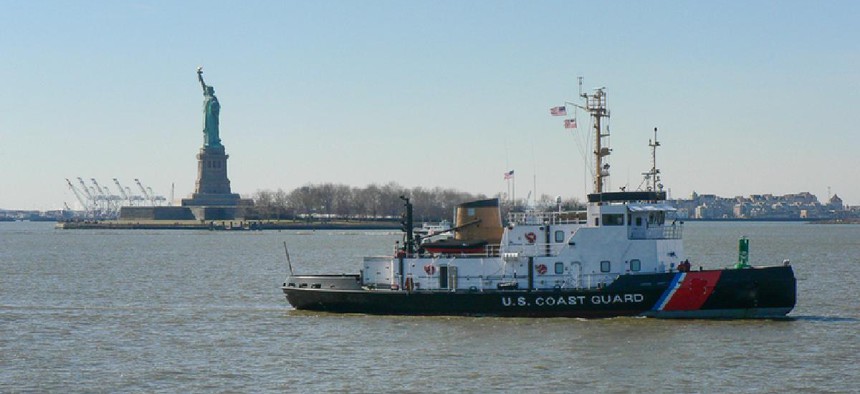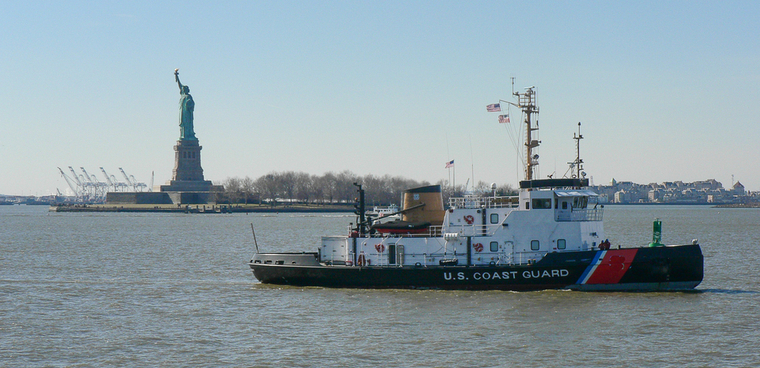Coast Guard confronts harassment and retaliation in the ranks

The U.S. Coast Guard wants to build out its cyber workforce, but will have to contend with budget restraints and culture issues surrounding sexual harassment and retaliation.

The U.S. Coast Guard wants to build out its cyber workforce, but will have to contend with budget restraints and culture issues surrounding sexual harassment and retaliation.
Lawmakers pressed Adm. Karl Schultz, the commandant of the U.S. Coast Guard, on incidents of race-based harassment, sexual assault, and retaliation against whistleblowers during a June 23 House Homeland Security Committee hearing on diversity, equity and accountability in the Coast Guard.
Rep. Yvette Clarke (D-N.Y.), Chair of the House Homeland Security Subcommittee on Cybersecurity, Infrastructure Protection and Innovation, said "preventing harassment, bullying, assault and retaliation is not just a matter of developing appropriate policies but developing a culture that emphasizes accountability and justice."
Clarke asked the commandant if he believed that the Coast Guard has a culture where "white men look out for, promote, and protect each other."
Schultz responded, saying he believed it was a broader societal issue with subsets in the armed forces, including the Coast Guard.
"If there are 'good old boy' networks...then I want to bust them up," Schultz said.
The hearing comes after a year of damning investigative reports from Congress and watchdog agencies evaluating allegations of retaliation and harassment in the Coast Guard. Two came from the Department of Homeland Security's Office of the Inspector General: one found 16 allegations of race-based harassment and improper investigations of the majority of those cases, and another that substantiated whistleblower retaliation claims.
The hearing also comes as the Defense Department overall grapples with issues of sexual assault and racial and gender diversity and inclusion. Defense Secretary Lloyd Austin also announced June 21 that he would work with Congress to amend the Uniform Code of Military Justice to remove prosecution of sexual assaults and similar crimes from the military chain of command following the completion of an independent review.
Homeland Security Committee Chairman Rep. Bennie Thompson (D-Miss.) said in opening remarks that he's long been concerned about the Coast Guard's lack of diversity, particularly in leadership and that demographics "fail to reflect the diversity of the American public" with less than 5% of active duty members identifying as Black or African American opposed to approximately 14% of the U.S. population.
Schultz testified that recruiting efforts targeting diverse populations, for example, through television advertising were hampered by budget and technology constraints. The best recruitment tool, he said, was having Coast Guard members go to schools as recruiters don't yet have the technology or ability to meet with prospects virtually like other military services, Schultz said.
The service plans to recruit 25% women and 35% underrepresented racial and ethnic minorities, he said, but marked changes will take time.
"When you're only recruiting about 4,000 a year, moving the needle in an organization of 42,000 does not happen fast," especially when accounting for annual attrition, Schultz said.
Those cultural issues directly feed into the military services' ability to recruit and retain talent – particularly for technical jobs, such as cybersecurity.
Schultz said recent cyberattacks were "clearly troubling" and remained one of the service's priorities to deal with "an increasingly complicated and challenging landscape," later adding "we've got to own that….that is a work in progress."
Schultz said the Coast Guard is building out its cyber workforce and hit full operational capability with its first cyber protection team. There are also plans and funding to build out a second one.
The Coast Guard asked for $12.2 million to create a third cyber protection team "to work with cyber specialists at critical ports of entry to facilitate prevention, response, and resiliency for cyber incidents in the Marine Transportation System" and $21.5 million to update its Command, Control, Communications, Computers, Cyber, and Intelligence (C4I) capabilities, including infrastructure, cybersecurity, and communications across its IT portfolios, according to budget documents.
But some lawmakers worry it's not enough. During a June 17 House Homeland Security Committee budget hearing, Rep. Jeff Van Drew (R-N.J.) expressed concern that the Biden administration's $13.1 billion budget proposal for the Coast Guard "left out necessary funding for Coast Guard needs."
"We need to address the aging IT infrastructure of the Coast Guard without a doubt. This budget doesn't accomplish that. And it spends so much and it doesn't accomplish that. That's, again, the bizarre -- I don't know what other word to use -- part of it all," Van Drew said.



